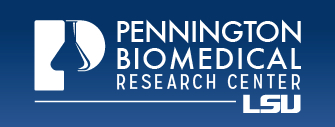Mechanisms of the Effect of Physical Activity on the Adaptation to a High-Fat Diet
| Status: | Active, not recruiting |
|---|---|
| Conditions: | Healthy Studies |
| Therapuetic Areas: | Other |
| Healthy: | No |
| Age Range: | 18 - 35 |
| Updated: | 4/21/2016 |
| Start Date: | May 2007 |
| End Date: | June 2020 |
The study is designed to determine the effect of high physical activity level vs. low
physical activity level on the adaptation to a high fat diet.
physical activity level on the adaptation to a high fat diet.
A high fat diet is linked to weight gain and obesity. An adjustment to the acute exposure to
high fat diet is not abrupt and takes time. In a previous study from our laboratory, it has
been shown that high level of physical activity can accelerate the adaptation to a high fat
diet by increasing fat oxidation. In this study we will determine the mechanism involved in
this adjustment. Our hypotheses are:
1. High fat diets decrease skeletal muscle glucose metabolism and decrease mitochondrial
biogenesis through the upregulation of PDK4 and downregulation of PGC1α; increased
physical activity will prevent these deleterious effects.
2. A high fat diet will increase hepatic and skeletal muscle lipid; increased physical
activity will prevent these deleterious effects.
3. These effects are more pronounced in individuals with a low mitochondrial content
high fat diet is not abrupt and takes time. In a previous study from our laboratory, it has
been shown that high level of physical activity can accelerate the adaptation to a high fat
diet by increasing fat oxidation. In this study we will determine the mechanism involved in
this adjustment. Our hypotheses are:
1. High fat diets decrease skeletal muscle glucose metabolism and decrease mitochondrial
biogenesis through the upregulation of PDK4 and downregulation of PGC1α; increased
physical activity will prevent these deleterious effects.
2. A high fat diet will increase hepatic and skeletal muscle lipid; increased physical
activity will prevent these deleterious effects.
3. These effects are more pronounced in individuals with a low mitochondrial content
Inclusion Criteria:
- Both genders and all races will be invited to participate
- BMI > 19 and < 35 kg/m2
- Age 18-35
- Women will be asked to participate in the follicular phase of the menstrual cycle as
determined by menstrual history and a negative pregnancy test will be recorded prior
to participation
- Willing and able to walk on a treadmill at a pace of 3 mph at 3%grade for 3-4
hours/day for 3 consecutive days
- Willing to eat only and all foods provided by Pennington for 9 days on 2 occasions
(18 days)
- Willing to stop alcohol consumption for the duration of the study
- Able come to Pennington for meals and tests for 20 days 12 of these inpatient.
Exclusion Criteria:
- Significant renal, hepatic, endocrine, pulmonary, cardiac or hematological disease
(for the consent form you will have to use kidney, liver, etc )
- You abuse alcohol or illegal drugs or are unable to avoid alcohol or caffeine prior
to testing
- Smokers
- Unable or unlikely to eat all and only food provided by the PBRC metabolic kitchen.
- Pregnant or planning to become pregnant
- Corticosteroid use in previous two months
- Chronic use of anti-diabetic, anti-hypertensive, or other medications known to affect
fat metabolism
- Use of Depo-Provera, hormone implants or estrogen replacement therapy
- Irregular menstrual cycles
- Post-menopausal women
- Weight gain or loss of > 3kg in the last 6 months
- Unable or unwilling to perform treadmill walking at the required speed and incline to
achieve 1.8*RMR
- History or family history of blood clots deep vein thrombosis or pulmonary embolism)
- Poor circulation, bypass operation on legs, blood coagulation disorders, diagnosed
peripheral arterial or vascular disease, cramping pain in your muscle during exercise
or nerve damage in your legs.
- You had major surgery on the abdomen, pelvis or legs within previous 3 months.
- You have cancer
- You have rheumatoid disease/ walking or joint problems
- You are claustrophobic
- You are depressed or have an eating disorder
- You demonstrate a style of interpersonal relationships that would inhibit successful
completion of the study
For the MRS / MRI, the following exclusion criteria apply:
- Individuals who have a heart pacemaker, defibrillator, or non-removable hearing aid
- Individuals with any clips or metal plates in their head
- Individuals who have any artificial limbs or prosthetic devices
- Individuals who were ever injured by a metallic foreign body which was not removed
- Individuals with bridgework held in place by magnets
We found this trial at
1
site
Pennington Biomedical Research Center Unlike other medical research facilities where science occurs in separate labs...
Click here to add this to my saved trials
